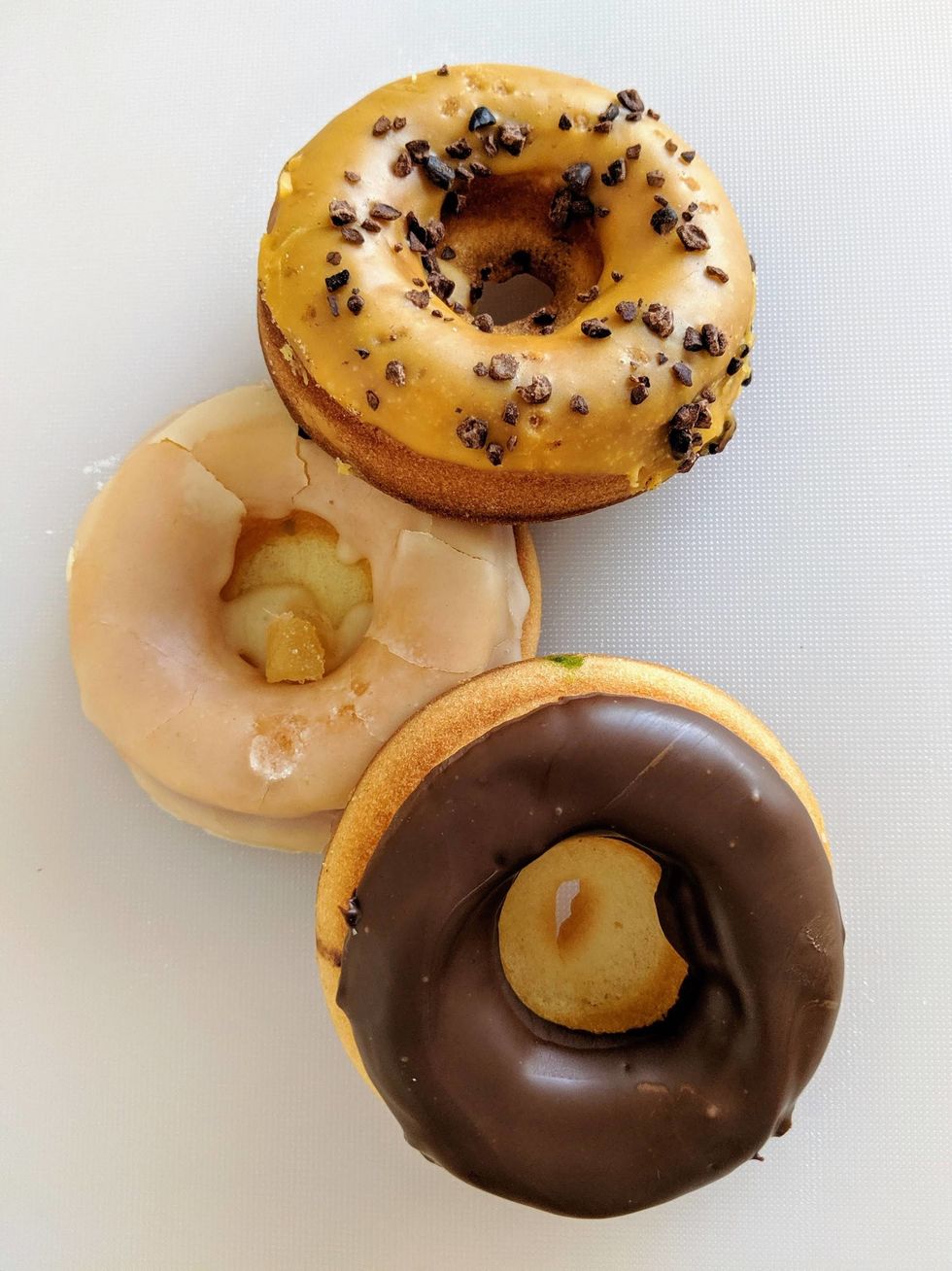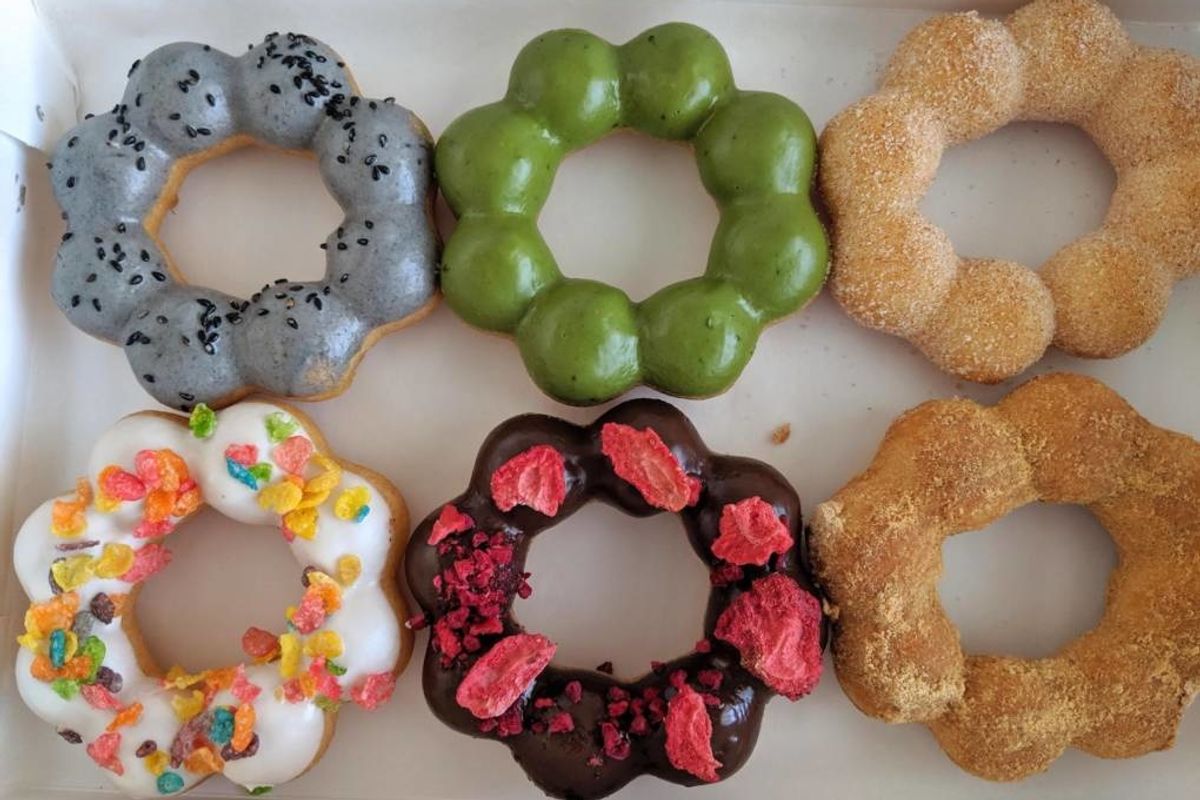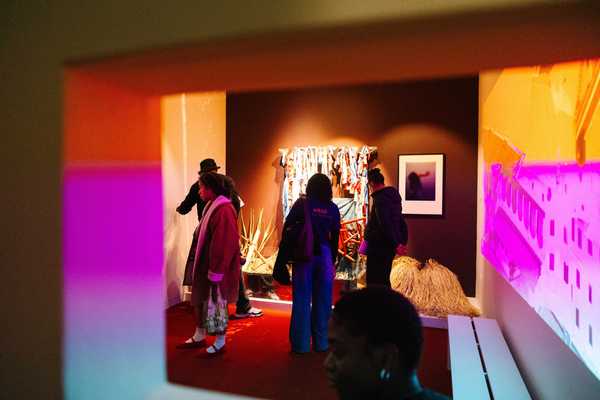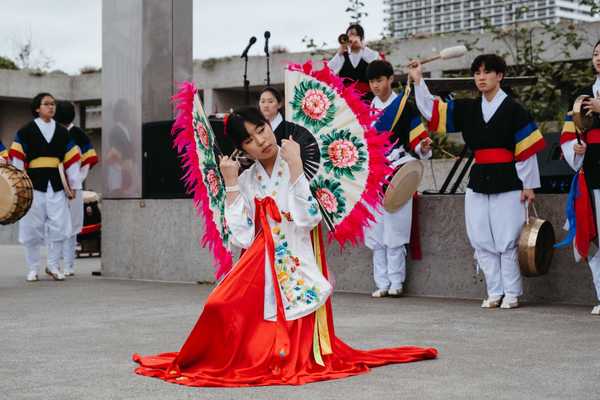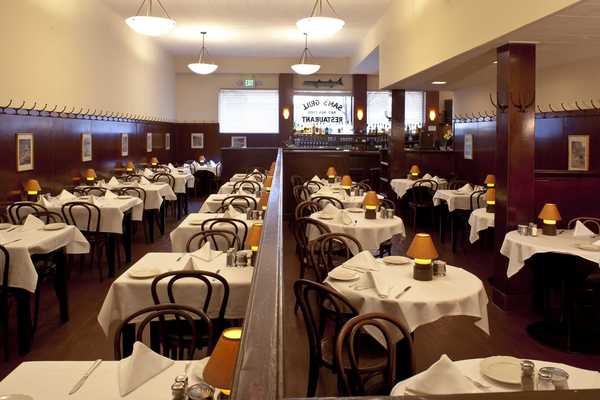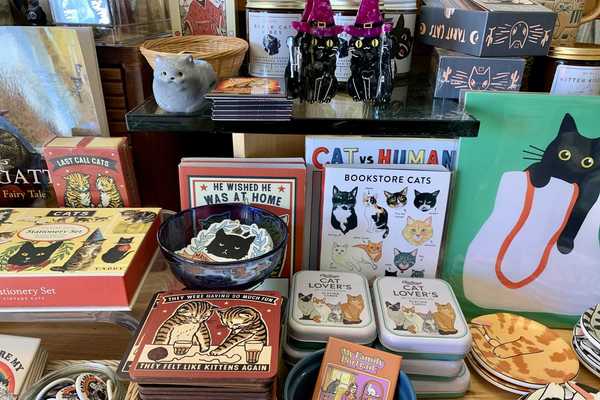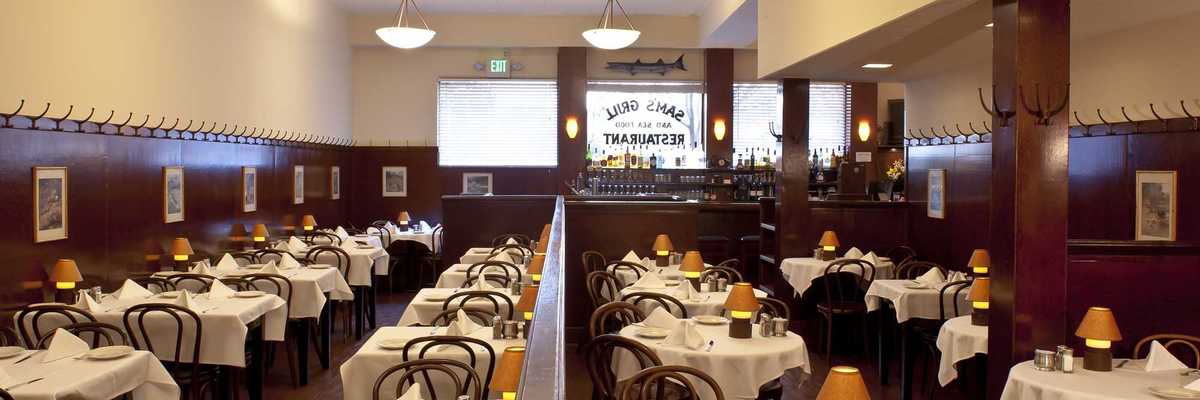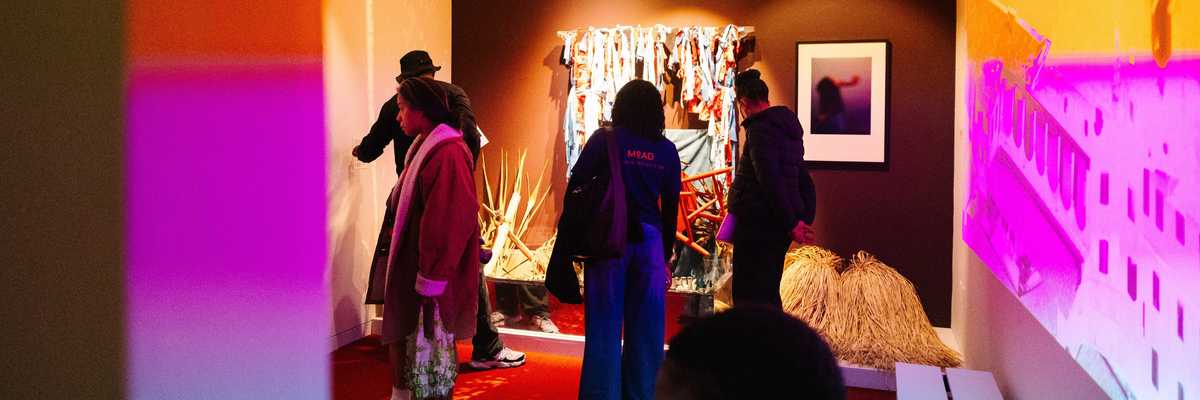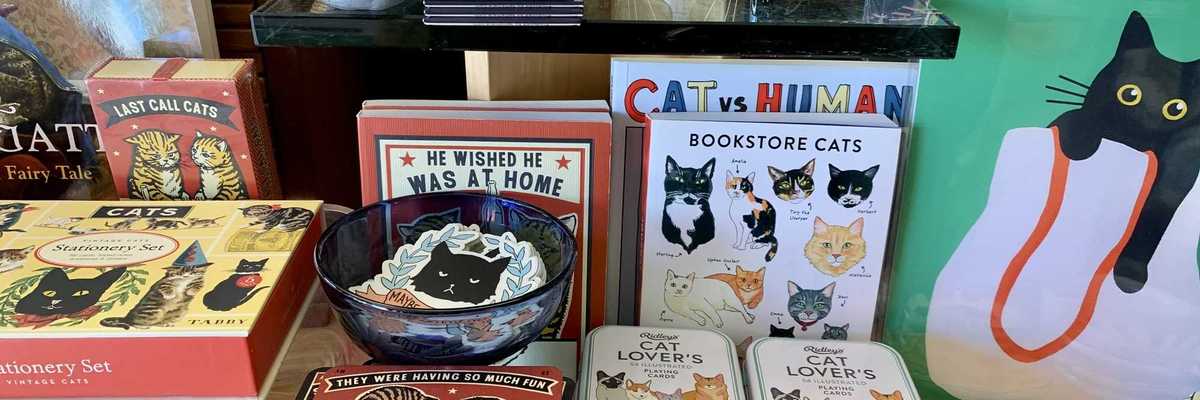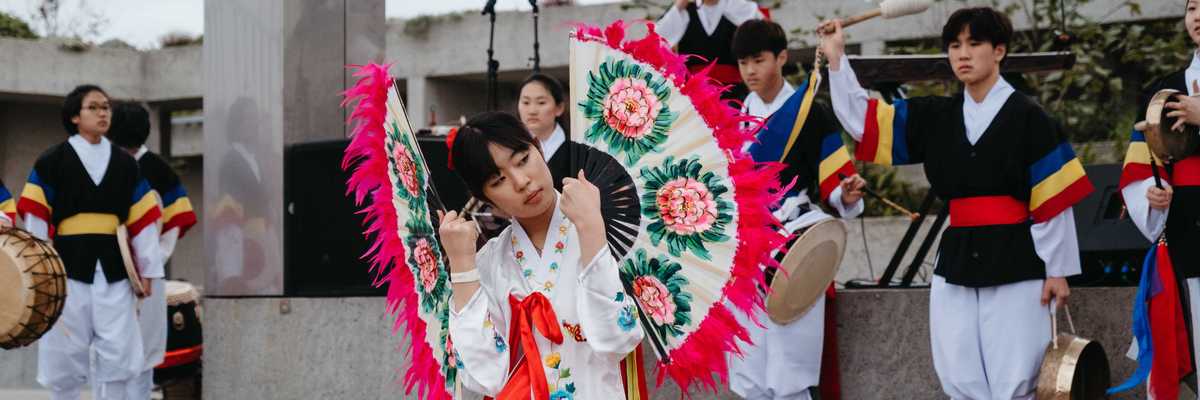Cupcakes, cake pops, and cronuts have all had their 15 minutes of fame in the food world. But these days, social media is filled with images and mentions of the mochi donut.
The combination of the American donut and Japanese mochi, a traditional rice cake made of sweet glutinous rice flour, makes a food trend that is both yummy AND photogenic. The mochi rice flour adds a chewy, almost bouncy texture to a normally dense, cakey donut. And its eye-catching appearance comes from several donut balls stuck together to form a circular ring shape, making it look more like a bracelet than a snack.
Mister Donut in Japan is credited with first selling this donut hybrid in 2003, where they call them "Pon de Rings." Seeing how popular they were in Japan, second-generation baker, Chris Watanabe decided to start his own mochi donut shop in Honolulu called MoDo Donuts in 2017 and added signature glazes like lilikoi (passionfruit), matcha and black sesame.
By the time MoDo set up their first temporary pop-up shop in San Jose's Mitsuwa Marketplace in April of 2018, Bay Area foodies waited upwards of 90 minutes just to get their hands on one of these donuts. Since then, MoDo's pop-up shop has made appearances every few months in the South Bay, and their popularity hasn't waned judging by continued long wait times.

To be a recognizable part of any trend, timing is everything, and Mochill knew they wanted to be the first ones out of the gate in San Francisco. Their family business is more accustomed to making takoyaki (fried octopus puffs) in Honolulu where they have made a name for themselves with their restaurant, Yama-chan. When they decided to open a takoyaki in Japantown, they wanted to add a separate brand that would focus instead on a sweet snack. Enter Mochill.
Their mochi donuts don't stray from the currently popular Pon de Ring style, but the owner's son Taisuke Yamamoto says that Mochill's main differentiator is their flavors and the addition of toppings like dried fruits, macadamia nuts, and cereal. "We have Fruity Pebbles, White Chocolate, Kinako (a soybean powder that's a popular flavor in Japan), and we're working on a peanut butter and jelly, and a Nutella flavor," he says. They offer six flavors every day, three of which change every few days.Since opening in July earlier this year, they've been selling out daily. "We sell-out an hour before we close every day. Weekends are pretty crazy. But I don't think customers wait more than an hour."
There's no doubt that Mochill's business is built on a trend, but Yamamoto believes their longevity is secure because of a flexible business model. "We're trying to focus on mochi desserts, so we can do anything mochi. They don't have to be donuts." They plan on expanding the menu with other non-donut items and beverages in the future. Yamamoto says they're also hoping to add more Bay Area locations and even expand to Southern California and Texas. "Our company mission is to spread the greatness of Japanese food culture.
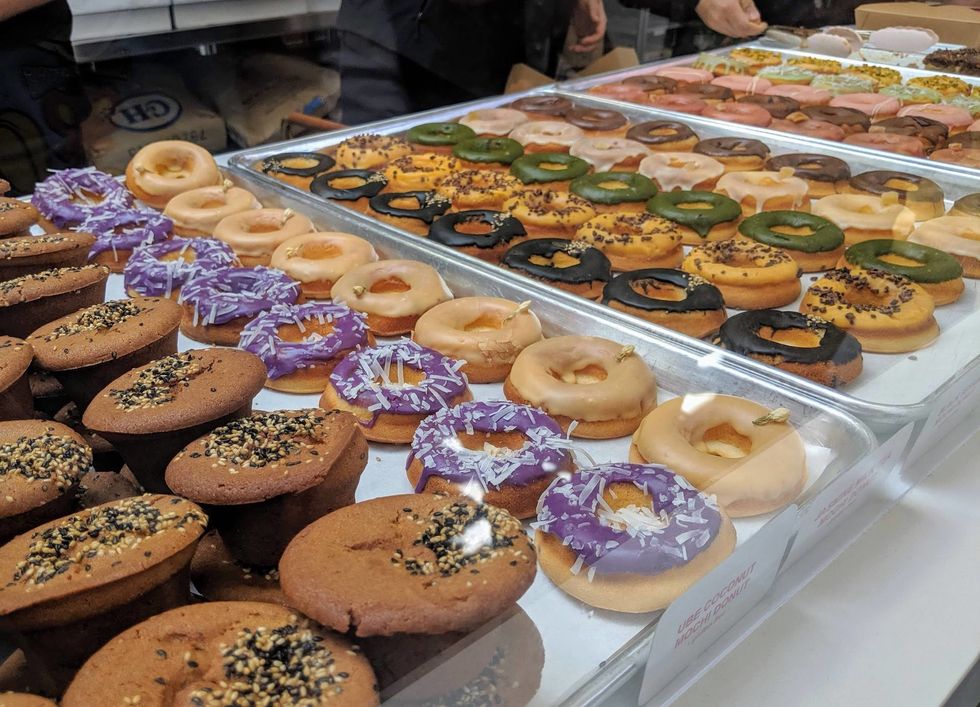
"However, not all mochi donuts follow the same formula. At Third Culture Bakery in Berkeley, partners in business and in life, Chef Sam Butarbutar and Wenter Shyu started their wholesale business with their now famous mochi muffin back in 2016. But these days, their mochi donuts have become just as popular.
Butarbutar used to make an Indonesian sweet steamed rice cake with his Mom called Kueh Lapis, so using rice flour was something he was used to. The combination of his classic French pastry expertise along with his desire to create something that would be true to his heritage lead to the mochi muffin.
But it was Shyu who suggested trying the same idea with making a donut. At first, Butarbutar resisted. "After months of pestering him, he finally made one," says Shyu, and that's when his partner agreed to try selling it. In the Spring of 2018, they made four dozen the first day and sold out within an hour.
"I think people are just obsessed with donuts. This is just a different iteration of that," says Shyu. "And the texture of a mochi donut is just incredible!"
Though they still have that signature chewy texture, Third Culture Bakery's mochi donuts are not made in the pon de ring style, and they are also gluten-free, unlike most other mochi donuts. Butarbutar's recipe is made solely with rice flour and not a rice/wheat flour blend like most others.
"Ours is a true butter mochi donut," says Shyu "You get that velvety buttery texture with the chewiness of the mochi and it makes it slightly denser. And it's baked, we don't fry them. We use quality ingredients like Koda Farms rice flour from California. All the vibrant colors of our donuts come from the ingredients we use. We actually puree down fresh mangoes and passionfruit for our glaze."
They're hoping their efforts to be different will also work well in other markets. Plans are underway to open a Third Culture bakery/showroom as well as a matcha cafe in Denver by the end of the year, and another in Los Angeles next year. "Some people say that we're not a 'real' mochi donut, but we're not trying to take away from any other donuts out there," says Shyu. "We're just trying to add a different option. I think there's room for everybody."
The success of both Third Culture and Mochill in such a short amount of time proves that even within a food trend, there's room for more than one iteration. And if public demand is any indication, there's still plenty of time left in the mochi donut's 15 minutes of fame.
This article was written by Elaine Wu, and originally appeared on KQED's Bay Area Bites.
